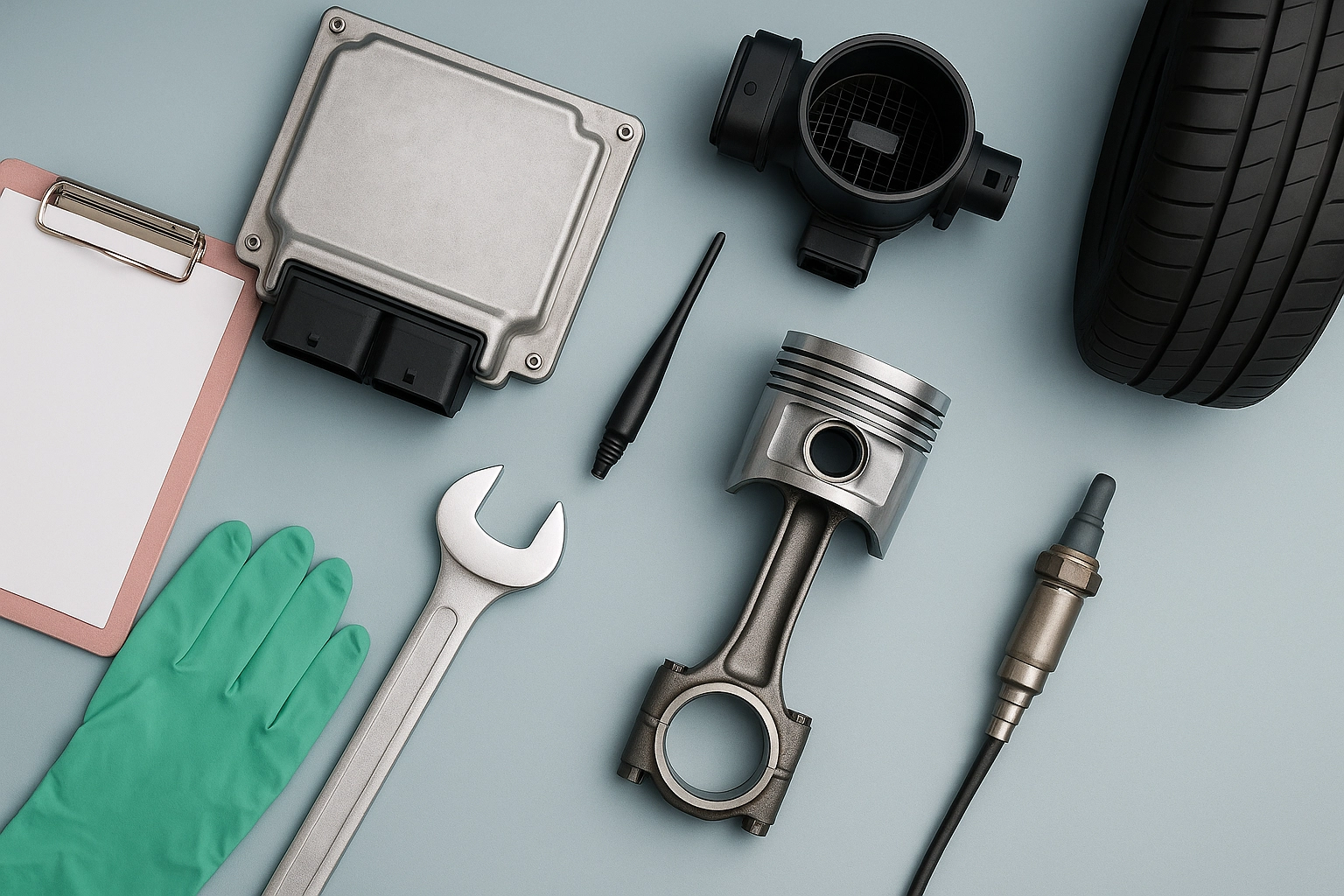ISO 15031 Engine OBD Compliance
The ISO 15031 series of standards provides a framework for testing and certifying On-Board Diagnostics (OBD) systems in vehicles. This service ensures that the diagnostic trouble codes, self-diagnostic functions, and other features of an engine's OBD system comply with international safety and performance requirements.
Engine OBD compliance is critical for automotive manufacturers as it directly impacts vehicle emissions and fuel economy standards. Compliance testing involves a series of rigorous checks on the OBD system’s ability to monitor real-time engine conditions, detect malfunctions, and provide diagnostic information to the driver or technician via the vehicle's onboard computer.
The ISO 15031 standards cover various aspects such as:
- Diagnostic trouble codes (DTCs)
- Communication protocols between the OBD system and the diagnostic tool
- Emission control systems monitoring
- Engine performance diagnostics including fuel injection, ignition timing, and exhaust gas recirculation
The testing process typically involves connecting a specialized diagnostic tool to the vehicle’s OBD port. The tool sends commands to query the OBD system for information about its self-diagnostic capabilities, fault codes, and performance data. This is followed by a series of functional tests that simulate real-world driving conditions.
Engine manufacturers must ensure their systems pass these tests before the vehicles can be sold on international markets. Compliance testing not only helps in meeting regulatory requirements but also enhances vehicle reliability and safety. By ensuring OBD systems function correctly, automotive companies reduce the risk of undetected malfunctions that could lead to increased emissions or engine damage.
For quality managers and compliance officers, this service ensures adherence to global standards, which is crucial for maintaining market access and consumer trust. R&D engineers benefit from detailed insights into how their systems perform under various conditions, allowing for continuous improvement. Procurement teams can verify that the components they source are compatible with international OBD protocols.
Real-world applications of ISO 15031 compliance testing include:
- Ensuring vehicles meet regulatory emissions standards
- Improving fuel efficiency through optimized engine performance
- Enhancing vehicle safety by ensuring accurate fault detection and reporting
- Promoting global market access for automotive manufacturers
The testing process is designed to be comprehensive, covering all aspects of OBD functionality. This ensures that the diagnostic systems in vehicles are robust and reliable.
Why It Matters
OBD compliance testing is essential for automotive manufacturers as it directly impacts vehicle emissions standards and fuel economy. By ensuring their OBD systems meet international standards, manufacturers can reduce the risk of undetected malfunctions that could lead to increased emissions or engine damage.
The ISO 15031 series of standards provides a framework for testing and certifying On-Board Diagnostics (OBD) systems in vehicles. Compliance with these standards is mandatory for vehicle manufacturers who wish to sell their products globally, ensuring they meet the stringent safety and performance requirements imposed by various countries.
For quality managers and compliance officers, this service ensures adherence to global standards, which is crucial for maintaining market access and consumer trust. R&D engineers benefit from detailed insights into how their systems perform under various conditions, allowing for continuous improvement. Procurement teams can verify that the components they source are compatible with international OBD protocols.
Compliance testing not only helps in meeting regulatory requirements but also enhances vehicle reliability and safety. By ensuring OBD systems function correctly, automotive companies reduce the risk of undetected malfunctions that could lead to increased emissions or engine damage. This is particularly important for electric and hybrid vehicles where efficient energy management is critical.
The global nature of modern automotive manufacturing means that compliance with these standards is not just a legal requirement but also a strategic one. It ensures that manufacturers can access the largest possible market, which in turn supports economic growth and innovation within the industry.
Applied Standards
The ISO 15031 series of standards provides a comprehensive framework for testing and certifying On-Board Diagnostics (OBD) systems in vehicles. These standards are widely recognized and applied globally, ensuring that vehicle manufacturers meet the stringent safety and performance requirements imposed by various countries.
ISO 15031 covers several key aspects of OBD system testing:
- DTCs: Diagnostic trouble codes are essential for identifying potential issues within the engine. The standards specify how these codes should be generated, stored, and communicated.
- Communication Protocols: The OBD system must communicate with diagnostic tools using standardized protocols to ensure compatibility and reliability. ISO 15031 defines these protocols in detail.
- Emission Control Systems Monitoring: The standards specify how the OBD system should monitor emission control devices such as catalytic converters and oxygen sensors to ensure they are functioning correctly.
- Engine Performance Diagnostics: ISO 15031 outlines the tests that must be performed on various engine components including fuel injection, ignition timing, and exhaust gas recirculation systems. This ensures that these critical components are operating within specified limits.
The standards also include guidelines for testing in real-world driving conditions to ensure that the OBD system can accurately monitor and report on performance under various environmental factors such as temperature, altitude, and humidity.
International Acceptance and Recognition
- Australia: The Australian Government mandates that all new vehicles sold in the country must comply with ISO 15031 standards. This ensures that the OBD systems are reliable and accurate, contributing to better road safety.
- European Union: All member states of the EU require automotive manufacturers to meet ISO 15031 standards for their vehicles. Compliance is a condition for market access within the EU.
- United States: The Federal Motor Vehicle Safety Standards (FMVSS) reference ISO 15031, making it mandatory for all new vehicle models sold in the U.S. to pass these tests.
- Canada: Similar to the U.S., Canada also requires compliance with ISO 15031 standards as part of its regulatory framework.
The widespread acceptance and recognition of ISO 15031 ensure that automotive manufacturers can confidently design, test, and produce vehicles that meet global safety and performance requirements. This standardization not only simplifies compliance for manufacturers but also enhances consumer trust in the reliability and safety of their products.





